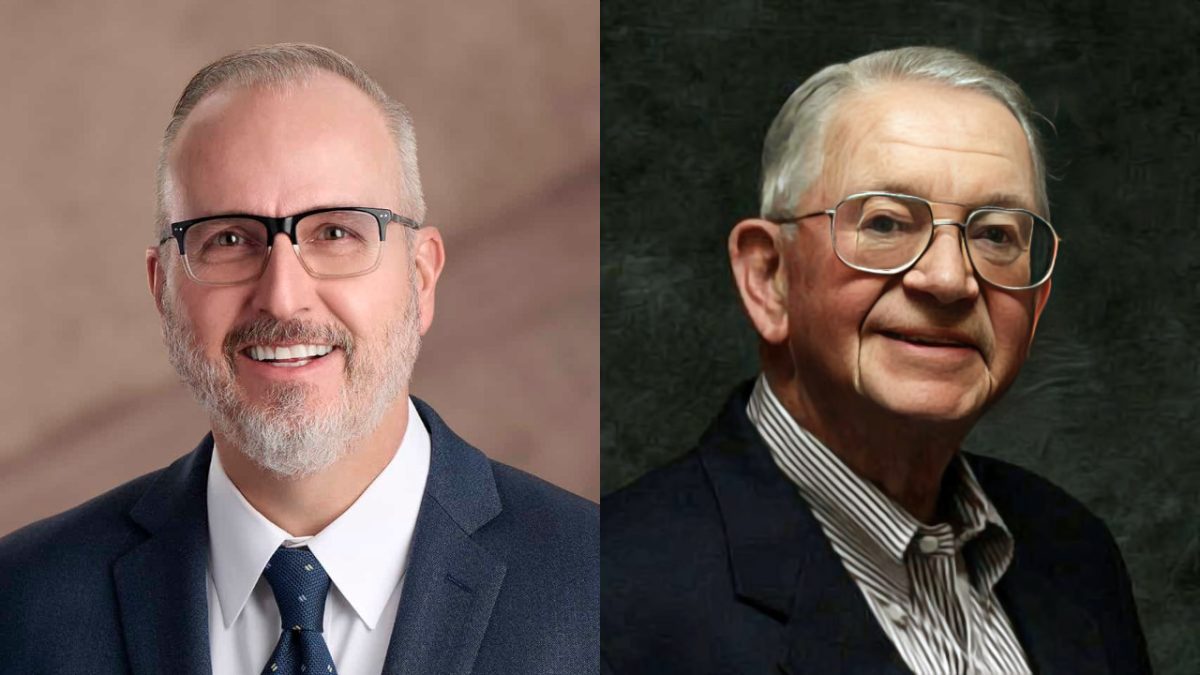A Conversation with IFF President Ron Nate & Tea Party Bob
Podcast Notes by Bob Neugebauer
The recent endorsement of Governor Brad Little by President Trump has sparked fresh questions about Idaho’s conservative credentials and priorities, particularly as residents face mounting financial pressures from utility rate increases and expanded government spending. These developments reveal a troubling pattern of policies that favor corporate interests while burdening Idaho families.
The Power Grab Against Idaho Families
Idaho Power’s proposed rate increases represent one of the most egregious examples of corporate welfare at the expense of ordinary citizens. The utility is seeking a 17% rate increase for households and small businesses while limiting increases for large corporate customers to just 7%. This disparity alone should outrage every Idaho taxpayer.
The underlying causes of these rate increases expose deeper problems with Idaho’s energy policy direction. Idaho Power is systematically moving away from reliable, affordable coal energy sources toward expensive renewable alternatives that cost six to seven times more than traditional coal, natural gas, or hydroelectric power. As Ron Nate explained during our recent Idaho Pulse discussion, “those energy sources are 6 to 7 times more expensive than coal or natural gas or hydro.”
Perhaps most troubling is Idaho Power’s strategy of exporting electricity to California while forcing Idaho consumers to subsidize this corporate profit-seeking. Idaho families now must compete with West Coast demand for their own state’s power generation, driving up costs while the utility reaps higher revenues from out-of-state sales. This represents a fundamental betrayal of Idaho Power’s obligation to serve Idaho customers first.
The Public Utilities Commission should immediately reject any rate increases until Idaho Power commits to prioritizing in-state customers over California exports. Idaho families shouldn’t subsidize corporate profits from selling our energy resources to other states.
Federal Dependency and False Conservatism
The Trump administration’s proposed cuts to federal funding through the Department of Government Efficiency (DOGE) initiative presents both challenges and opportunities for Idaho. Currently, approximately 42% of Idaho’s government spending comes from federal sources, creating an unhealthy dependency that compromises our state’s autonomy.
Rather than fearing these potential cuts, Idaho should embrace the opportunity to restore local control and reduce federal interference. The threatened elimination of the U.S. Department of Education would be particularly beneficial, returning education decisions to Idaho without federal mandates and oversight.
However, this transition requires genuine conservative leadership willing to make difficult decisions about government spending and priorities. Unfortunately, Governor Little’s record suggests reluctance to lead on conservative principles. His championing of the Idaho Launch program—essentially a $70 million socialist scheme to provide taxpayer-funded job training for corporate cronies—demonstrates misplaced priorities that favor special interests over taxpayers.
The Illusion of Republican Leadership
Despite Idaho’s 85% Republican legislature, only about 29 out of 105 legislators consistently support genuine conservative policies. This reality exposes the hollow nature of party labels and the influence of corporate money on political decision-making.
The failed effort to eliminate even dormant government agencies like the Women’s Commission—which wasn’t meeting, receiving funding, or conducting activities—illustrates the cowardice that pervades our state government. If legislators cannot eliminate an inactive commission, how can we expect them to make meaningful cuts to bloated government spending?
Idaho currently operates 189 government bureaucracies despite constitutional requirements for only 20 departments. This expansion reflects decades of weak leadership and capitulation to special interests rather than principled governance focused on constitutional limits and taxpayer protection.
The Argentina Model for Government Reform
Argentina’s President Javier Milei demonstrated what genuine conservative leadership looks like by cutting government spending by 28% while improving economic performance. This “chainsaw economics” approach proves that dramatic government reduction enhances rather than hinders prosperity.
Idaho should adopt similar reforms, moving beyond modest spending growth reductions to actual budget cuts. Free markets direct resources to their highest and best use through price signals and profit incentives, while government spending flows to politically powerful special interests regardless of efficiency or public benefit.
Immigration and Economic Reality
Recent observations throughout Idaho reveal concerning patterns regarding illegal immigration and labor practices. Businesses openly acknowledge dependence on non-English speaking workers, while federally funded construction projects employ crews where English speakers represent a small minority.
This situation demands honest evaluation of e-verify enforcement and genuine immigration reform that prioritizes legal pathways while ensuring fair wages for American workers. The current system exploits both illegal immigrants and legal workers while undermining wage standards and workplace safety.
The Path Forward
Idaho stands at a crossroads between genuine conservative governance and continued corporate cronyism disguised as Republican leadership. The state possesses tremendous natural resources, including rare earth minerals, that could drive prosperity if managed properly through private enterprise rather than government partnerships.
However, realizing this potential requires leaders willing to champion conservative principles consistently rather than merely responding to political pressure. Idaho families deserve representatives who prioritize their interests over corporate special interests, whether in utility regulation, immigration enforcement, or government spending.
The upcoming legislative session will test whether Idaho’s supposed conservative supermajority can deliver meaningful reforms or will continue serving corporate cronies while burdening working families. The choice between genuine conservatism and political theater has never been clearer.



